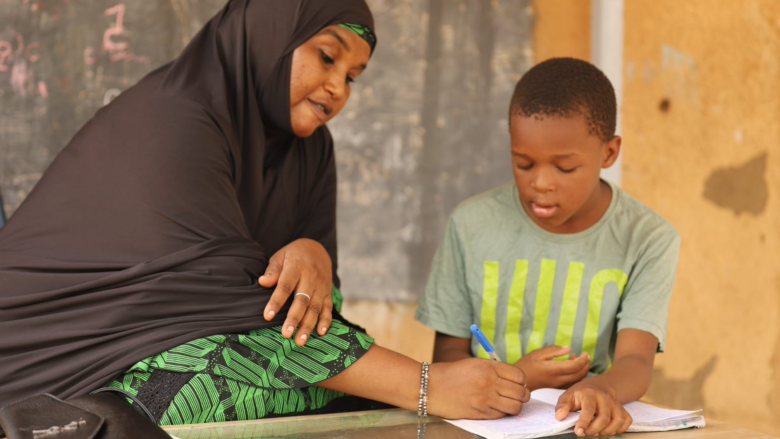NIAMEY, Niger, September 8, 2021—Several years have passed since she has started her job but her passion hasn’t changed a bit. “Between these children and me, there is a powerful bond that I cannot define. When they are happy, I feel at peace. On the other hand, when something happens to them, I feel a deep unease, “explains Aissata Maiga, a trained teacher and school director in the Haro Banda neighborhood—right bank of the Niger River—on the outskirts of Niger’s capital, Niamey. “That's why I will fight until the last day for their happiness. And this will come to pass through a quality education.”
Aissata Maiga has lived there for several years and started a family just a few steps from her school. "I cannot separate my private life from my professional life. I consider my children as my students and vice versa. I have a great attachment to children both at school and elsewhere."
The teacher is one of those who are said to have the job in the skin. "I started teaching in the early 2000s. At the time, we were faced with huge challenges. Overcrowded classrooms, lack of quality teacher training, lack of resources were our bottlenecks," states Aissata.

